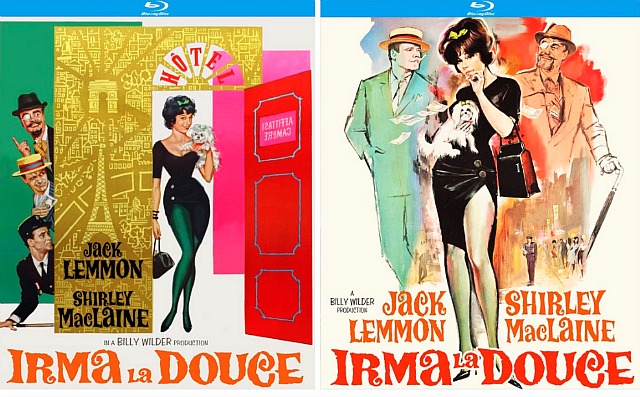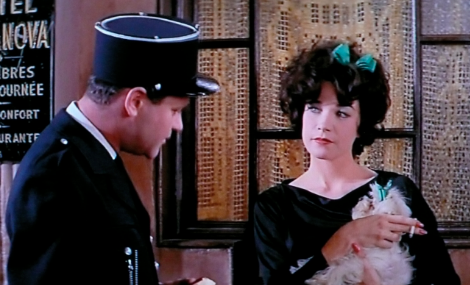I saw on Twitter that in mid July Kino Lorber is bringing out a 4K remastered Bluray of Billy Wilder‘s Irma la Douce (’63). The disc will contain audio commentary by author and film historian Joseph McBride, with whom I maintain a correspondence.
So I wrote McBride the following: “What is there to say about the overlong, inauthentic Irma la Deuce? I like Andre Previn‘s musical score, but it moves so slowly and takes so long (147 minutes). Jack Lemmon‘s performance as Shirley MacLaine‘s policeman lover isn’t so much nervy or heart-touching as glumly dutiful. Lou Jacobi, as a local Pigalle bartender, is the only really good thing in it.”

McBride’s reply: “I’ve been working on a critical study of Wilder, following my critical study of his mentor Ernst Lubitsch, called “How Did Lubitsch Do It?” (Columbia University Press, 6.26). And so I was honored to be asked by Olive Films to talk about Wilder and Irma.
“Irma represented an important stage in my own sexual liberation. I had to see it three times while I was a horny but guilt-ridden Catholic high school student and kept walking out before I could make it all the way to the end. So I thank Billy Wilder for helping free me from my religious scruples about sexuality.
“Ironically in that light, Irma is one of Wilder’s most romantic films, while also dealing with the seamy side of life, a paradoxical combination he often explored in his films both in Europe and the U.S. Irma shows him taking advantage of the new frankness allowed Hollywood filmmakers in 1963 and, as he often did, helping lead the charge. It deals openly with prostitution and mocks sexual hypocrisy, themes that pervade his body of work.”
I’d forgotten that Irma was Wilder’s most popular film. It cost $5 million to make, and brought in $25,246,588 — quite the sum in 1963 dollars.
McBride: “After that, he made Kiss Me, Stupid, which American audiences recoiled from because it brought prostitution home to their unglamorous backyards. Stupid is one of his most audacious films and the beginning of his outlaw period in which his romanticism increasingly came out of the closet while he also rebelled against the anything-goes approach of Hollywood in the ’60s and ’70s. He saw that as antithetical to the Lubitschean method of sly innuendo, in which he was trained as an artist to comment wryly on sexual mores.
“Wilder’s writing collaborator I. A. L Diamond observed of his partner’s complex seriocomic viewpoint: ‘It’s an old Viennese tradition that comes down from Schnitzler. It’s a Middle European attitude, a combination of cynicism and romanticism. The cynicism is sort of disappointed romanticism at heart — someone [critic Andrew Sarris] once described it as whipped cream gone slightly curdled.”
“I believe that Wilder expressed the full range of his personality in his late period, sometimes in a mellow mood but often pugnaciously, and in ways we are still [only] beginning to understand.”

